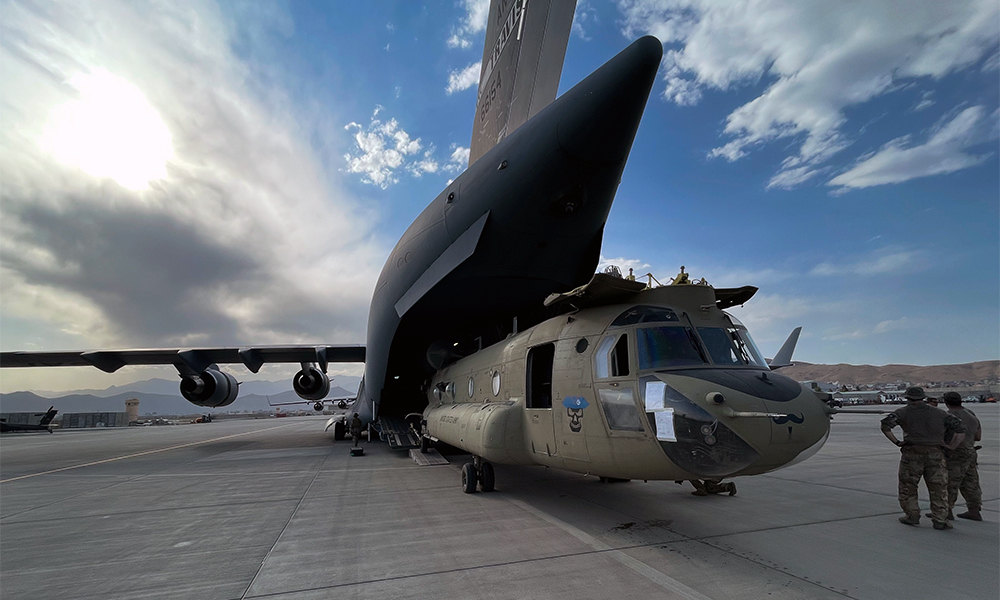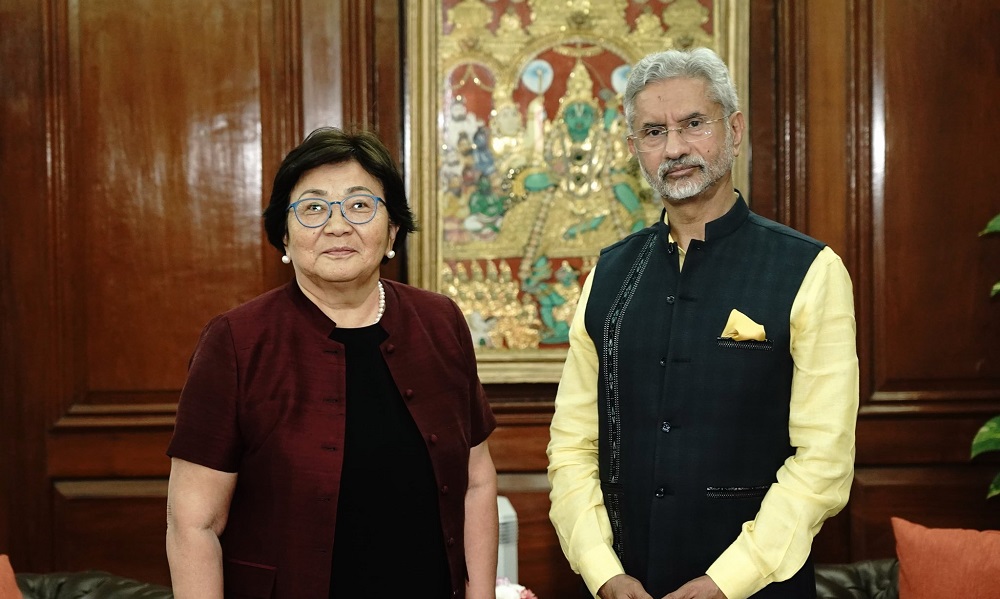Latest News
U.S. ends 20-year war in Afghanistan with final evacuation

The United States on Monday completed its military withdrawal from Afghanistan after a huge but chaotic airlift that cost the lives of 13 U.S. troops and left behind thousands of Afghans and hundreds of Americans still seeking an escape from Taliban rule, Reuters reported.
According to Reuters in a first in the nearly 20 years since al Qaeda’s Sept. 11, 2001, attacks plunged the United States into war, not a “single service member” from the U.S. military was in Afghanistan, the Pentagon said in an afternoon news conference.
“Heartbreak” was the word that U.S. Marine General Frank McKenzie used as he described emotions surrounding the U.S. departure from its longest war after dangerous and tireless efforts by U.S. troops to evacuate American citizens and vulnerable Afghans.
“There’s a lot of heartbreak associated with this departure. We did not get everybody out that we wanted to get out,” McKenzie, the head of the U.S. Central Command, told a Pentagon news briefing.
The top U.S. diplomat in Afghanistan, Ross Wilson, was aboard the last C-17 military transport flight out of Kabul’s airport at 11:59 p.m. Kabul time, along with the commanding general of the U.S. military’s 82nd Airborne Division, Reuters reported.
More than 122,000 people have been flown out of Kabul since Aug. 14, the day before the Taliban – which harbored the al Qaeda militant group behind the 2001 attacks on New York and Washington – regained control of the country.
“But I think if we’d stayed another 10 days, we wouldn’t have gotten everybody out,” McKenzie said.
As the U.S. troops departed, they destroyed more than 70 aircraft, dozens of armored vehicles and disabled air defenses that had thwarted an attempted ISIS-K, locally known as Daesh rocket attack on the eve of the U.S. departure, Reuters reported.
Having failed to anticipate the Taliban would prevail so quickly, Washington and its NATO allies were forced into a hasty exit, leaving behind thousands of Afghans who helped them and may have qualified for evacuation and others who feel at risk.
The emergency air evacuation came to an end a minute before a Tuesday deadline set by President Joe Biden, who inherited a troop withdrawal deal made with the Taliban by his predecessor, Donald Trump, and decided to complete the pullout without preconditions.
Biden’s decision has led to the biggest crisis of his young presidency and raised far-reaching questions about the capability of Western democracies to build lasting institutions in their image overseas, and their willingness in the future to do so, Reuters reported.
The swift Taliban takeover of Afghanistan has drawn comparisons to the capture of Saigon by North Vietnamese forces in 1975 and shaken generations of U.S. veterans who served there and watched the wars’ final days with sadness.
Biden, in a statement, commended U.S. troops for carrying out the largest airlift in U.S. history “with unmatched courage, professionalism, and resolve.” “Now, our 20-year military presence in Afghanistan has ended,” he said.
According to the Reuters nearly 2,500 Americans have been killed in the conflict, including 13 troops in a suicide bombing by ISIS-K, locally known as Daesh, last week outside the airport. Many of them were just babies when the Sept. 11, 2001, attacks took place.
McKenzie said the Taliban helped secure the airfield as the United States carried out the evacuation. But he cited a rare convergence of interests: The Taliban wanted the United States out of Afghanistan, and the United States wanted to leave, Reuters said.
But he warned that the Taliban would have difficulty grappling with ISIS-K, a fierce enemy of both the West and the Taliban. He declined to speculate about future cooperation with the Taliban following the U.S. departure, even as Biden has promised to hunt down Islamic State militants responsible for last week’s bombing.
“They (the Taliban) let a lot of those people … out of prisons and now they’re going to be able to reap what they sow,” McKenzie said.
The withdrawal opens a new chapter in the U.S. effort to keep pressure on groups it sees as mortal enemies, including ISIS-K,and al Qaeda.
Following the suicide attack last week, the U.S. military flew in drones for strikes in Afghanistan on Friday and Sunday to attack ISIS-K. Experts warn that U.S. intelligence is far harder to collect from overseas and strikes are more risky, Reuters reported.
Latest News
IEA urges World Bank to resume work on 7,000 incomplete projects

Officials at the Ministry of Rural Rehabilitation and Development (MRRD) say 7,000 incomplete projects of the World Bank are at risk of destruction in Afghanistan. They call on the World Bank to resume the work of these projects.
According to them, discussions have been held with the World Bank about these projects, but there has been no result yet.
“7,000 incomplete projects are being destroyed, and if the work is not started, these projects will be destroyed. We ask the World Bank to resume the work of these projects as soon as possible,” said Noorul Hadi Adel, the spokesperson of MRRD.
Meanwhile, members of the private sector also ask international institutions to resume their work in Afghanistan.
According to the officials of this sector, with the start of these projects, job opportunities will be provided for thousands of people in the country.
“These projects create employment for our people and the country will grow a lot,” said Mirwais Hajizadeh, a member of the private sector.
However, economic experts stated if the work of these projects does not start soon, they will be destroyed and the investments made in them will be wasted.
Latest News
Ten people killed by floods in Helmand

Ten people have been killed and six others injured by floods in Helmand province in the past week, local officials said on Friday.
According to officials, seven of those were members of the same family, and they were killed in Kajaki district last night.
“Most of the people moved from vulnerable areas to high lands and mountains, and thanks Allah the number of casualties is low,” Sher Mohammad Vahdat, the head of information of the Directorate of Information and Culture in Helmand, said adding rescue teams and security forces have been dispatched to help people.
It is said that the telecommunication system has also been disrupted due to the effect of floods in Kajaki district. Floods have also destroyed thousands of acres of agricultural land.
Latest News
UN envoy meets Indian foreign minister to discuss Afghanistan

Roza Otunbayeva, the UN Secretary General’s Special Representative for Afghanistan, met with the Indian Foreign Minister Subrahmanyam Jaishankar in New Delhi and discussed issues related to Afghanistan, it was announced on Thursday.
During the meeting, Otunbayeva thanked India for “its critical humanitarian support and longstanding friendship for the Afghan people” and discussed the importance of regional and international cooperation to address prevailing challenges in Afghanistan, UNAMA said on X.
Jaishankar also said on X that the sides exchanged views on the current situation in Afghanistan.
“Underlined that India has provided wheat, medicines, pesticides and school supplies. Appreciate the role of UN agencies as partners in these endeavors,” he said.
-

 Sport4 days ago
Sport4 days agoACL fever grows as fixtures finalized
-

 World5 days ago
World5 days agoUS will not take part in any Israeli retaliatory action against Iran
-

 Latest News4 days ago
Latest News4 days agoOver 50 people dead in traffic accidents over Eid
-

 Latest News4 days ago
Latest News4 days agoUS identifies Kabul airport suicide bomber
-

 Business4 days ago
Business4 days agoAfghanistan-Kazakhstan chamber of commerce opens in Herat
-

 Latest News5 days ago
Latest News5 days agoGood rains enable DABS to increase power production in Kabul
-

 World4 days ago
World4 days agoIsraeli military vows response to Iran attack as calls for restraint mount
-

 Latest News3 days ago
Latest News3 days agoPakistani police give Afghans in Balochistan one day to leave
























